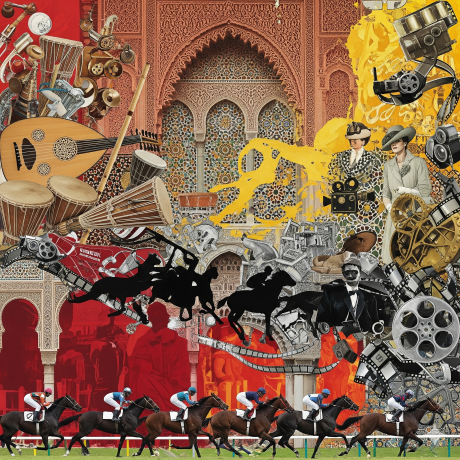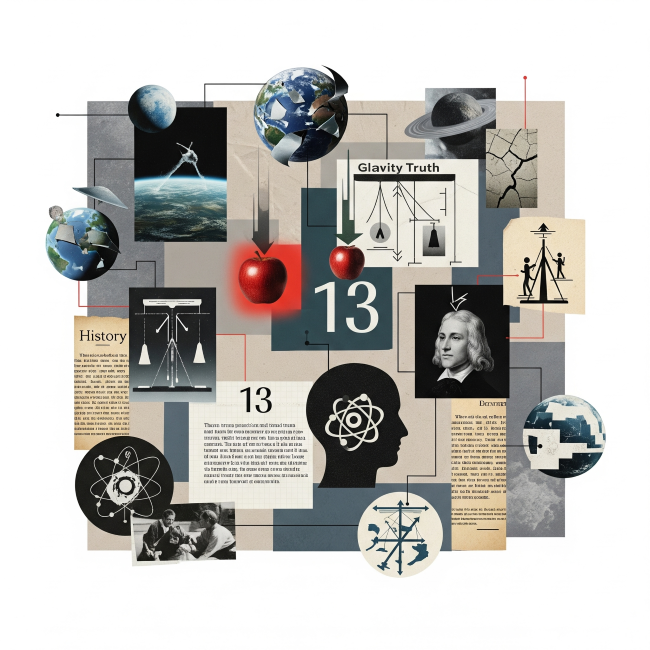The Rise of Fake Scientific Publications in Academia

In the grand halls of scientific endeavor, we are taught to believe in rigor, peer review, and the self-correcting nature of the scientific method. But what happens when those mechanisms falter—when the very systems designed to safeguard truth serve, instead, as conduits for deception?
Over the past year, a series of high-profile scientific revelations have shaken the academic world and, perhaps more troublingly, the public’s confidence in it. From fraudulent artificial intelligence studies at elite institutions to foundational Alzheimer’s research undone by evidence of data manipulation, the cracks in the ivory tower have become harder to ignore.
The MIT Mirage

Image Credit: Unsplash
In early 2025, Aidan Toner-Rodgers, a doctoral student at the Massachusetts Institute of Technology, published a study that sent ripples through both academia and industry. The paper, hosted on the preprint server arXiv, claimed that artificial intelligence dramatically improved efficiency in a materials science laboratory. The research was timely, resonating in an era where universities and corporations alike are scrambling to leverage AI for everything from drug discovery to workflow automation.
Media outlets rushed to cover the findings. The Atlantic, Nature, and The Wall Street Journal all profiled the study. It seemed to confirm what so many wanted to believe: that AI was not just the future but the present, and it was working wonders in the most rigorous of settings.
But by the spring, MIT had launched an internal investigation—and what they found was devastating. The data, they said, was fraudulent. The study was retracted. Toner-Rodgers was expelled. In a rare move, the university issued a public statement expressing no confidence in the legitimacy of the work.
The fallout was swift and chilling. Not just because a single researcher lied—but because no one caught it until it was too late. The MIT case laid bare a structural vulnerability: the hunger for transformative tech-driven narratives can sometimes override the slow, patient processes of verification.
Alzheimer’s and the Collapse of a Hypothesis
If the MIT case felt like a media failure as much as a scientific one, the retraction of a 2006 Alzheimer’s study touched a different nerve: it cut at the heart of biomedical research.
That study, published in Nature nearly two decades ago, linked a particular protein—Aβ*56 (a form of beta-amyloid)—to memory loss in mice, offering a tantalizing clue in the search for a cure to Alzheimer’s disease. It became a foundational piece in the “amyloid hypothesis,” which has guided billions in pharmaceutical investment and dominated Alzheimer’s research for years.
In June 2024, the journal issued a full retraction. An investigation revealed manipulated images—duplicated bands, cropped blots, questionable controls. Of the six co-authors, five agreed to pull the study. One—lead researcher Sylvain Lesné—did not.
The implications were staggering. If Aβ*56 was never a valid target, what of the countless studies built upon it? What of the experimental drugs that failed in clinical trials? What of the patients and families who hung their hopes on a scientific mirage?
More than a single paper had crumbled. A decade of dominant thinking in neuroscience was now suspect. The retraction sparked a wave of soul-searching in the Alzheimer’s community, with some questioning whether the field’s obsession with beta-amyloid had blinded it to other, more fruitful paths.
The Organic Delusion
Not all questionable science is driven by fraud; some is propelled by cultural momentum. A 2018 study published in JAMA Internal Medicine claimed that regular consumption of organic food was associated with reduced risks of certain cancers—specifically lymphoma and postmenopausal breast cancer.
In the years since, that finding became gospel in health-conscious communities. Organic produce was not just better for the environment; it was, it seemed, better for your cells.
But in late 2024, French scientific authorities launched a formal critique of the study. The problems were manifold: the observational nature of the data, unaccounted-for lifestyle factors (like smoking, exercise, and socioeconomic status), and the absence of any demonstrated causal link.
Still, the study has not been retracted—and its authors stand by their findings. What’s left is a gray zone: a paper that technically remains in the literature but has lost the confidence of much of the scientific community.
This case reveals a subtler form of scientific breakdown: not outright fraud, but the selective elevation of research that aligns with prevailing cultural or ideological trends. In this case, the romanticism of “natural” living proved a potent narrative—one too seductive to scrutinize rigorously.
The Business of Fraud

These stories do not exist in isolation. Rather, they are symptoms of a deeper and more disturbing trend: the industrialization of scientific misconduct.
In 2025, investigative reports uncovered sprawling fraud networks that produce fake scientific papers on demand. Using “paper mills”—companies that sell authorship, forge peer reviews, and fabricate data—these organizations flood academic journals with fraudulent research. Often, the papers are accepted and published with little more than a cursory review.
Major academic publishers, including Springer Nature and Wiley, have retracted thousands of such papers over the past few years—but experts believe this is only the tip of the iceberg. The scale of the problem is hard to quantify, and the economic incentives to publish (for tenure, funding, and prestige) remain strong.
In essence, science is being gamified—and the rules are exploitable.
What Now?
For the public, the instinct in the face of these revelations may be cynicism: if even the world’s top institutions and journals can’t tell good science from bad, why believe anything at all?
But that reaction, though understandable, may be premature. Retractions, after all, are also evidence that science is correcting itself—however belatedly and imperfectly. The problem is not that science sometimes gets it wrong; it’s that the systems meant to catch those errors often come too late, or not at all.
We live in an era of information abundance and institutional strain. The need for skepticism—critical, informed, and fair—has never been more urgent.
Science remains our best tool for understanding the world. But tools are only as good as the hands that wield them—and the vigilance of those who watch.
You may also like...
Be Honest: Are You Actually Funny or Just Loud? Find Your Humour Type

Are you actually funny or just loud? Discover your humour type—from sarcastic to accidental comedian—and learn how your ...
Ndidi's Besiktas Revelation: Why He Chose Turkey Over Man Utd Dreams

Super Eagles midfielder Wilfred Ndidi explained his decision to join Besiktas, citing the club's appealing project, stro...
Tom Hardy Returns! Venom Roars Back to the Big Screen in New Movie!

Two years after its last cinematic outing, Venom is set to return in an animated feature film from Sony Pictures Animati...
Marvel Shakes Up Spider-Verse with Nicolas Cage's Groundbreaking New Series!

Nicolas Cage is set to star as Ben Reilly in the upcoming live-action 'Spider-Noir' series on Prime Video, moving beyond...
Bad Bunny's 'DtMF' Dominates Hot 100 with Chart-Topping Power!

A recent 'Ask Billboard' mailbag delves into Hot 100 chart specifics, featuring Bad Bunny's "DtMF" and Ella Langley's "C...
Shakira Stuns Mexico City with Massive Free Concert Announcement!

Shakira is set to conclude her historic Mexican tour trek with a free concert at Mexico City's iconic Zócalo on March 1,...
Glen Powell Reveals His Unexpected Favorite Christopher Nolan Film

A24's dark comedy "How to Make a Killing" is hitting theaters, starring Glen Powell, Topher Grace, and Jessica Henwick. ...
Wizkid & Pharrell Set New Male Style Standard in Leather and Satin Showdown

Wizkid and Pharrell Williams have sparked widespread speculation with a new, cryptic Instagram post. While the possibili...






